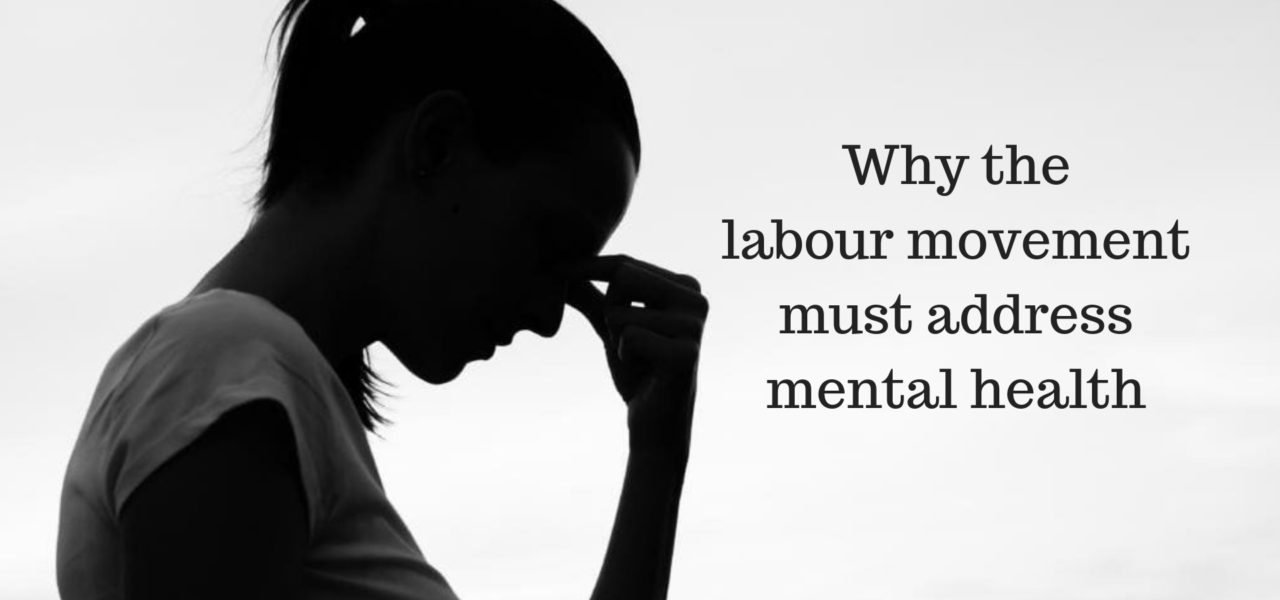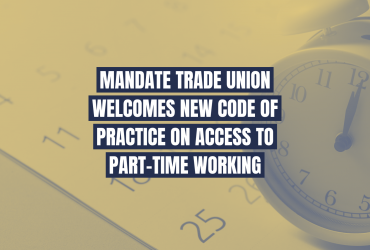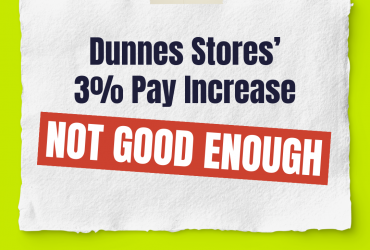
The Misery Machine
Monday 22 October 2018Why the labour movement must address mental health
By David O’Donoghue
THE rise of industrial capitalism was a truly horrible business. Here, from the watchtower of the present moment, the whole thing seems like an abstracted inevitability, shorn of its rougher edges by the distance of history and sanitised into our schoolbooks.
It is scrubbed so clean and concise, slotted in between the United Irishmen and the Easter Rising, it could go almost unnoticed by even the most attentive schoolchild taking the now grimly optional subject of history.
Some factories sprung up out of the aether and smiling agricultural serfs popped inside, worked for a bit, and shook their bosses’ hands at the end of the day before taking the tram to their brand spanking new urban housing.
But the labour movement doesn’t forget.
If the labour movement has an advantage other than solidarity it is history. It is the common heritage of men and women struggling for centuries against exploitation. It is the illumination, inspiration and guidance offered by the many who came before us, heroes whose names are writ in fire across songs and screeds alongside the nameless toilers who lit the way even through the shadows of their unknown history.
We remember the Lockout. We remember Blair Mountain. We remember these and countless other struggles and horrors. We recognise, more than anything else, that the steel and concrete of the industrial world did not suddenly appear, anodyne and immediate, in a puff of smoke at history’s command.
They were the works of the brains and hands of human beings, who fought relentlessly to be fairly compensated for their weariness and wonders. We will rage against the history books with long picket lines turned into paragraphs and the rattling breath of black-lunged, militant miners disappeared into the margins.
But the capitalism of the 21st century is altogether more sly and insidious. Will the generations to come look at the dilapidated husks of customer service call centres and stop their breath with wonder? Will they watch a drone buzzing through their window, carrying a package and groceries, and reminisce fondly about the speed and efficiency of the young bike courier made obsolete by the little machine? This much is unlikely.
But although the 21st century capitalism may seem both sleeker and less threatening than its upstart, smoke-belching historical predecessor it is no less insidious.
The bosses who sent bold workers up skyscrapers and down mines polluted our world plenty in the process. They mutilated the bodies of workers in William Blake’s ‘Satanic Mills’, rotted the lungs of miners and poisoned the environment. But the pollution and rot being spread by the modern working environment is fair less obvious than fish gobbing their gills in death spasms at the top of murky water (those unsightly necessities are left to the underdeveloped to shoulder out of sight).
It is a pollution evident only in shaking hands and substance abuse, toxic fumes given off as crying fits in employee cubicles and counting out change to see whether you can be behind enough on rent this month to afford a vital counselling session. Anxiety and depression seep and seethe throughout our society, propagated by the same demented economic logic and model of workplace relations that gave us billowing smoke stacks and corpses on the slag heap.
Ireland is experiencing a mental health crisis, a fact so evident that even the most conservative commenters can agree. ReachOut Ireland, which provides support for young people with mental health difficulties, reported a 108 per cent increase in users accessing their content on social anxiety.
In response the mainstream carefully skirts around mentions of economic sources of this distress and even vehemently denies that socio-economic reform and mass movements might be a key part of the solution. The solutions most commonly suggested among our betters in the press and public life are as insubstantial as the pay-packet of the poor trembling, call-centre worker they hope to reassure.
Take a walk. Have a cup of tea. Go for a kick about with your mates. Don’t challenge your boss. Don’t question your landlord. Keep trying to make the pennies stretch further and whatever you do, do not look at the man behind the curtain.
I can say first hand, and I know I speak for many of my fellow young workers in low-paid and precarious conditions, that my job exacerbates my mental health struggle. It’s difficult to go for that head-clearing walk when you’ve been on your feet all day and your stomach gurgles from the insufficient packed lunch that is all you can afford to tide you over the 10-hour shifts.
How can you make it to meet friends when the world outside your house seems grim and oppressive, suffused with the dark vapours of constriction and discipline that float smog-like from your nearby workplace.
We will not solve our society’s epidemic of depression and anxiety until we jam the screeching gears of the misery machine that churns that terror out, the same way it once produced car parts and consumer electronics: massive wealth inequality, precarious employment and skyrocketing rent.
But the labour movement can fight it. The labour movement fought thousands strong under conditions worse than these.
Women worked 13 hours days in textile mills and discussed Das Kapital around the dinner table with not a scrap of formal education between them.
Migrant workers with withheld visas and passports have fought the fruit magnates of the United States with hardly a word of English.
The labour movement can turn suffering into strength and warm conversations about shared hardships can solidify into the fire of solidarity and action in our bellies.
We must oppose the establishment voices that would claim we simply need a change of mindset or scenery to clear away the gloom and that our spectral existence in internships and gig work in no way contributes to our feeling half-human at the end of it all, counting out coins to meet the latest rising rent payment.
When the darkness seems to close in and our chests get tight with worry, the labour movement can look to our past, and the millions of men, women and marginalised people who brought organisation and power out of that same gloom, to illuminate the way and bring forth a new and brighter future.
David O’Donoghue is a member of Mandate’s Youth Committee






